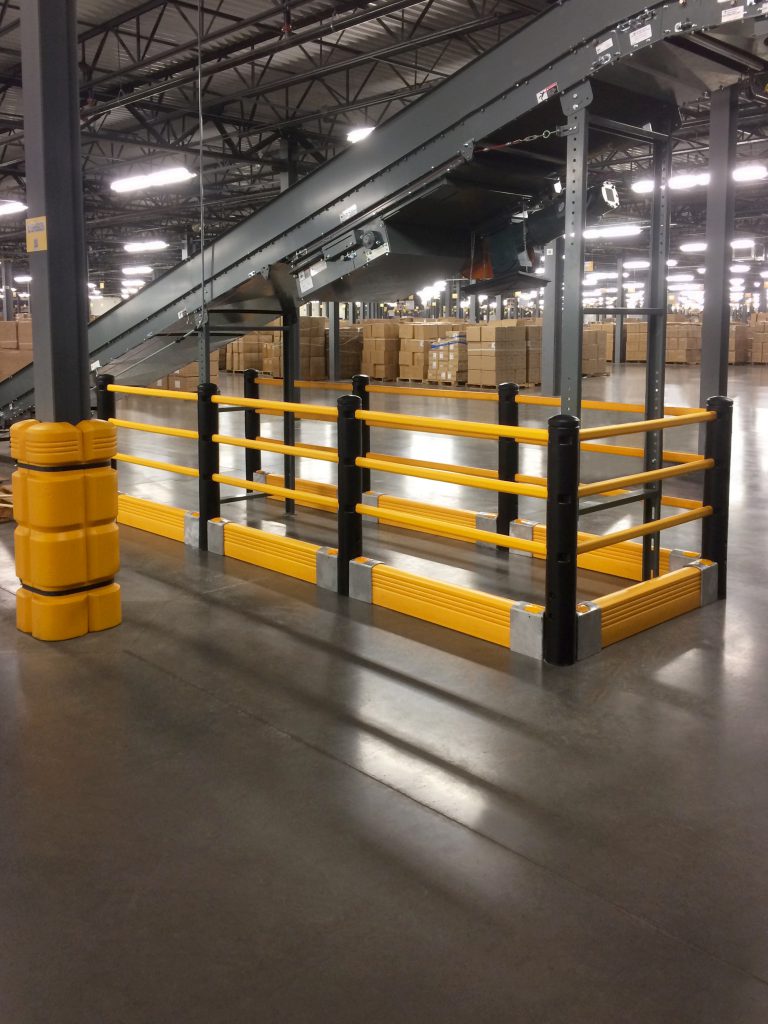Industry View – Why Plastic Beats Metal Every Time
23rd November 2017

A company view by McCue’s Matt Callard:
In the past, a conscientious warehouse manager had little choice. A sheet of steel bolted to a concrete floor was better than nothing when it came to protecting his equipment from that rogue FLT driver. But today, there is an alternative – and it’s smarter, longer-lasting and more hygienic. But first: a spot of myth busting. Plastic barriers look good, but they’re fragile, right? Wrong. The inherent flexibility of McCue’s High-Density Polyethylene (HDPE) barriers allow impacts to be dissipated into the shock absorbing dampers. This means that, unlike steel, the barriers can reform after collisions. For sure, steel is strong – but its rigidity is its downfall. One impact and the steel barrier crumples, no doubt ripping out the concrete floor in the process. But there’s more: steel corrodes, steel flakes, steel becomes jagged and ragged. In food and drink or pharmaceutical facilities, where cleanliness is next to godliness, debris from equipment is off limits. But in other facilities too, who would want a rusting piece of equipment, with hazardous jagged edges on show? HDPE barriers have a wipe-clean surface and a bright, highly visible aesthetic. They don’t chip, scratch or require repainting, so maintenance costs are kept to a minimum. Plus, they are safe for sensitive environments, including cold storage. The installation process from McCue is also speedy and designed for minimum disruption, meaning your productivity is maintained as McCue streamlines and organises your operations. Don’t quick fix and don’t think short-term. Plastic barriers by McCue are long-lasting, good looking and perform brilliantly over an extended period of time, bringing superior solutions and long-term ROI to your facility protection needs.

